- Home
- Kelley Armstrong
The Unquiet past
The Unquiet past Read online
IN EARLY JUNE 1964, the Benevolent Home for Necessitous Girls burns to the ground, and its vulnerable residents are thrust out into the world. The orphans, who know no other home, find their lives changed in an instant. Arrangements are made for the youngest residents, but the seven oldest girls are sent on their way with little more than a clue or two to their pasts and the hope of learning about the families they have never known. On their own for the first time in their lives, they are about to experience the world in ways they never imagined…
For more Secrets:
iTunes.com/readthesecrets
The
Unquiet
Past
KELLEY
ARMSTRONG
O R C A B O O K P U B L I S H E R S
For Julia
The distinction between past, present and future is only a stubbornly persistent illusion.
—Albert Einstein
Table of Contents
One
Two
Three
Four
Five
Six
Seven
Eight
Nine
Ten
Eleven
Twelve
Thirteen
Fourteen
Fifteen
Sixteen
Seventeen
Eighteen
Nineteen
Twenty
Twenty-One
Twenty-Two
Twenty-Three
Twenty-Four
Twenty-Five
Twenty-Six
Twenty-Seven
Twenty-Eight
Twenty-Nine
Thirty
Epilogue
ACKNOWLEDGMENTS
One
TESS SNEAKED OUT of the orphanage a couple of hours before dawn. That was the best time to meet Billy—even on a Sunday he needed to deliver the bread before six. As Tess’s dreams got worse, she found herself getting up earlier and earlier anyway, so she was happy for the excuse to avoid sleep.
The smell of freshly baked bread led her across the town park. As she drew near, Billy held out a hunk of it, letting wisps of cinnamon and yeast waft her way.
“Works better than a trail of bread crumbs,” he said.
“Tastes better too,” she said as she took a bite.
The orphanage never got the cinnamon-raisin loaves. Mrs. Hazelton—the matron—said it wasn’t healthy. It tasted healthy enough to Tess.
“Mom mixed in extra cinnamon for you,” Billy said.
Tess mumbled her thanks through a mouthful of bread. His mom wouldn’t have said outright that she’d done that for Tess. No one was supposed to know they were meeting in the middle of the night. Everyone did anyway. It was the worst-kept secret in Hope, and for good reason.
Tess had first seen Billy in town over a decade ago, but she’d only really met him five years later, when she’d been put in charge of bakery runs. Actually, that had been another girl’s job, but Tess had bribed her into switching. Her scheme had worked for two years, until the matron realized Tess had almost every job that involved going to town. It wasn’t that there was much to see in Hope—it was just a change of scenery, and Tess’s soul ached for change of any sort.
Tess and Billy had become friends. There’d been hints that he wanted to be more until last summer, when he met a boy at camp and figured out why he’d never actually tried to kiss Tess. She’d been relieved. She didn’t think of him “that way” and had been dreading his overture. Now, to keep his secret, they met a couple of nights a week, and everyone in town assumed they were dating.
That suited Tess just fine. Whenever she started thinking one of the local boys was growing up awfully cute, she reminded herself of Cricket, an older girl at the Home. Cricket used to keep scrapbooks of all the places she wanted to see once she turned eighteen and left the orphanage. Then she met a boy who wanted to stay in Hope, and now Tess would see her out walking their baby and watching the train bound for Toronto. In just over a year, Tess would turn eighteen, and she’d be on that train. She wasn’t letting anything—even cute boys—stop her.
“Mom told me to give these to you,” Billy said as they settled onto the dew-damp grass. He passed her a paper bag. “Suze left them behind when she went to college.”
Tess opened the bag and gasped. She reverently pulled out a glossy copy of Vogue. Last summer, Tess had “accidentally” ripped one of her skirts and altered it into a mini. Just being frugal. Mrs. Hazelton hadn’t been fooled; she’d bought her a new long skirt and left Tess to dream of minis and knee-high boots.
“They’re a little old,” Billy said. The magazines were dated 1963—last year.
“They’re newer than anything I have. Thank you. Tell Suze I’ll sew her a—” Tess caught a whiff of something on the breeze. “Do you smell that?”
“Might be sourdough rye. Mom was going to try a new recipe.”
“No, it smells like…”
Tess scrambled to her feet. Smoke. She smelled smoke. Beside her, Billy rose, saying, “Something’s on fire.”
He wheeled toward the town. She looked toward the imposing manor that had been her home for as long as she could remember. The Benevolent Home for Necessitous Girls. Smoke curled from two second-story windows.
Tess dropped the bread and ran.
Fire. The house was on fire. As Tess raced back to it, that’s all she could think.
My home is on fire.
There were no flames yet. But that smoke meant flames were coming, and she had to get up there, wake the others, make sure everyone got out.
As soon as she neared the house, she realized no one needed her to raise the alarm. The procedure for a fire had been drilled into all of them, and the older girls were getting the younger ones onto the main level and checking to be sure everyone was there. When they discovered Tess was missing, one of the girls might go back upstairs and try to find her. A friend risking her life for Tess, because she wasn’t where she was supposed to be. Because she’d snuck out. Again.
Tess yanked open the side door without even checking to see if the handle was hot. Luckily, it wasn’t. Not yet.
Tess ran in. The lower level had only begun to fill with smoke, tendrils creeping along the ceiling. She kept running until she reached the others. Someone grabbed her arm and said, “Thank God. We were just going to look for you,” but before Tess could even see who it was, she was swallowed by the rush of girls coming down the stairs and getting into formation.
Tess grabbed younger girls and hurried them to the line. As she did, she kept scanning faces, ticking them off a mental checklist. One was missing—the girl Tess looked for the hardest, the one she feared wouldn’t be there. Eleven-year-old Maggie, who devoured novels as fast as Tess did and had started on Tess’s own library, which the matron deemed “a little too old” for the younger girl. Tess disagreed—there was nothing truly scandalous in those books. So she’d let Maggie read them on the understanding that she do so in private, which she often did at night, curled up with a flashlight in the closet. Whenever Tess returned from visiting Billy, she’d check that closet and shuttle Maggie off to bed if she’d fallen asleep.
When Tess didn’t see Maggie, she bolted up the stairs. The higher she climbed, the thicker the smoke. She remembered what the firefighter had said during their last fire drill, and she pulled her shirt up over her mouth and nose to breathe through it. By the time she reached the top, though, it was like stumbling into a campfire, thick smoke everywhere, heat enveloping her, flames crackling.
She followed that crackling and saw flames. On the ceiling. Licking at it. She glanced back at the stairs.
No. Not yet. Don’t panic. Just move.
She ran bent over, mouth a
nd nose covered. She kept her eyes slitted, but it didn’t help. The smoke set them stinging and watering, and soon she just closed them and felt her way along the wall.
Second door. She needed the second door.
She passed the first. It seemed to take forever to reach the next one. She fumbled for the knob and—
Her fingers gripped white-hot metal, and she fell back with a yelp. Pain ripped through her hand, and she stood there, shaking it, fighting against the pain, trying to concentrate. A deep breath didn’t help. Even through the shirt she tasted smoke, and it made her cough. That cough helped her forget the shock of grabbing the scorching doorknob, and she used her shirttail to cover her hand as she turned it. She could still feel the heat stinging her burned hand, but she managed to get the door open.
She dropped onto all fours then and crawled. That was better; the smoke was light enough at floor level for her to see her way to the closet. Through the crack in the door she could make out the faint glow of Maggie’s flashlight, dropped when the girl had fallen asleep.
Tess covered her hand again, rose onto her knees and opened the closet door. The flashlight rolled out. She caught it and then raised it to see Maggie sound asleep, wrapped in a blanket, on the closet floor.
She grabbed Maggie’s shoulder and shook her. The girl didn’t stir. Tess shook harder, her heart pounding now as she realized something was wrong, horribly wrong.
The smoke. There didn’t seem to be much in here, but it had drifted through the cracks in the door. How much had Maggie inhaled? Tess struggled to remember what the firefighter had said about smoke inhalation.
She grabbed Maggie by the shoulders and tried to lift her, but the girl weighed almost as much as she did.
The noise downstairs drowned out her cries for help. There was another noise too. The crackle of fire rising to a roar. When she dared glance up, she wished she hadn’t. Flames engulfed the ceiling. Embers rained down, scorching her clothes and her face.
She wrapped her hand in Maggie’s nightgown and pulled. The girl barely moved an inch before the cheap fabric tore.
Tess had to wake her up. She had to.
She dropped beside Maggie. As she did, she noticed how still the girl was. Completely still. Tess’s hands flew to Maggie’s chest, but she didn’t feel anything.
She wasn’t breathing. Dear Lord, Maggie wasn’t breathing.
CPR.
Did she even remember how to do it? It was a new way of helping people who’d stopped breathing, and during a first-aid class earlier that year, the older girls had been shown a training film on it. But Tess’d had a bad night before the lesson—a really bad one—and she’d half-dozed as soon as the lights went out.
Didn’t matter. She had to try.
Tess tugged Maggie by the legs to get her out of the closet. Sparks flew everywhere. The smoke was nearly impenetrable now, even at floor level. Get Maggie breathing quickly, or neither of you will get out alive.
Clear the airway. She remembered that. She tilted back the younger girl’s head and opened her mouth and—
Maggie’s eyes flew open. “Wha—what?” The girl scrambled to sit up. “Tess? What’s…?”
Maggie saw the fire and her eyes went round, and she started to scream. Tess slapped a hand over the girl’s mouth and said, “You’re okay. Everyone’s okay. Just follow me.”
It took a moment for the shock to pass. A moment of Tess shaking Maggie and telling her to focus, just focus. Finally, understanding flickered in the girl’s eyes. Maggie nodded, and they set out, making their way back downstairs to join the others outside.
Two
EVERYONE WAS FINE. That was the main thing. And that’s what Tess kept telling herself as she sat on damp grass, away from the others, and stared at the house. Sitting on damp grass, just like this morning with Billy in the park. Except now fire-hose water soaked the ground instead of dew, and the red-and-orange horizon wasn’t dawn—it was the remnants of the house, still smoldering.
The house. Her home.
The girls liked to complain about how much they hated it, but as orphanages went, it was probably a good one. She’d certainly seen kids in town who seemed to have it tougher, with dirty clothes and bruised arms and a look in their eyes that said there were nights when they dreamed of being orphans.
The orphanage might feel like a cage some days, but it was still her home. Now, in the pile of smoking, sodden rubble, she couldn’t even tell where her bed had been. As for the clothing she’d labored over, struggling to make it fashionable despite the matron’s rules? Gone. Her box of patterns and reams of cloth and her little wooden box of treasures: fancy buttons and beads and metallic thread? Gone. Her books were gone too. Tales of wild adventure and faraway places. And with them gone, it felt as if her dreams had burned to cinder.
“You still have this,” said a voice behind her.
Billy lowered himself to her side and passed over a box filled with carefully rolled bills. Everything she’d earned running errands or sewing for ladies in town. She’d never spent a penny, no matter how tempting. Every bolt of cloth she used had been donated to the Home. Every treasure in her box had been found. Money was freedom, and she’d squirreled away all she had and given it for safekeeping to the person she trusted most.
She had Miss Webster—the home economics teacher—to thank for her foresight in keeping her money out of the house. Miss Webster had once warned some of them not to leave money lying around, because it might prove too great a temptation to any girl who wanted to run away. It had been years before Tess realized the girl Miss Webster meant was her. She wasn’t sure which was more offensive, the suggestion that she’d steal from the other girls or that she’d be foolish enough to leave a decent home for street life.
“Can you keep it a little longer?” she asked.
“Of course.”
He took the box back. Then he laid his hand on hers and squeezed it. She noticed a few of the girls looking over at them, a couple with curiosity, others envy. Lucky Tess, with her boyfriend.
Just a friend, she thought, but that’s exactly what I need.
Tess got along with the other girls. She even considered most of them friends. But she felt no real compulsion to seek them out now, knowing they’d get enough support and comfort from others. She’d always kept herself at a bit of a distance. Get too close, and they might discover her secret.
She’d learned her lesson about that. The only person who knew her secret was Billy. He could be trusted with it, perhaps because he had his own.
Secrets that made them different. Secrets that others wouldn’t understand. Secrets they both feared might mean they’d spend the rest of their lives hiding what they were.
It was not long before Tess saw Mrs. Hazelton. They’d been summoned to her cottage. The reason—she could barely process the reason. Every time she’d heard someone say it, she’d asked, Are you certain? Is that really what she said? There must be some mistake.
But there wasn’t. The Home was closing down immediately. It’d been struggling for years, and this was the final straw. No money to rebuild. Homes would be found for the Little Ones as quickly as possible.
Tess was not one of them.
There would be no home for Tess—not an orphanage or a family taking her in. She was too old. And so she was to receive, more than a year early, her dream of freedom. No longer a girl in an orphanage, but a young woman about to walk into the wide world and make her way there.
First, though, there was one last thing: a private conference at Mrs. Hazelton’s cottage. That’s where she was now, seated in Mrs. Hazelton’s study, taking tea with her. As if she was a young woman already. An adult already, come to visit and chat. Only this chat was no idle bit of gossip. It was more. So much more.
“You have something for me?” Tess said as soon as she took her tea. “A clue from my past?”
“How are you doing, Therese?” the matron asked. “I’m sure it’s difficult for you, losing your clothing
and your books.”
A gentle reminder that Tess could be a little blunt, lacking in the social niceties that facilitate normal conversation. A waste of time, Tess thought. But she acknowledged the matron with a nod and a murmured, “And you, ma’am? How are you managing?”
A smile rearranged the wrinkles in the old woman’s face. “I’m doing as well as can be expected. Now, about this clue. That’s really all it is. I know nothing of your family, Therese. You’d been dropped off at another home by a woman who claimed only to be a friend of your mother’s. That home was full, so you were brought here, which means I never even met the woman who left you. All I have of your past is this.”
She handed Tess a small cardboard box. Tess turned it over in her hands.
“I know you love your mystery stories, my dear, but you’ll find no clues on that box. It is only one that I provided for the purpose. What was given to me is inside. Each of you seven older girls has something from your past. This is yours. Would you like to open it here or…?”
She didn’t even wait for an answer, just looked at Tess’s expression and said, “Take it outside then, and open it in private. You may return if you have questions.”
Tess took her box out behind the church. Had the other girls opened the secrets from their past with Mrs. Hazelton? Or with one another? Shown them off? Compared them? She had no idea. Right now her heart thumped so loud that they could have been squealing with glee and she’d never have heard them.
Answers. That’s what this box held.
And the question? That seemed obvious. Who am I? But for Tess, that almost felt incidental. The bigger answer would come when she discovered where she came from, who she came from.
All her life, she’d listened to the other girls playing Who Am I?

 The Calling
The Calling Darkest Powers Bonus Pack
Darkest Powers Bonus Pack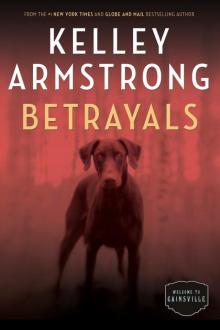 Betrayals
Betrayals Sea of Shadows
Sea of Shadows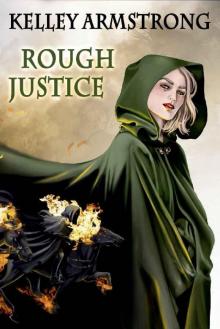 Rough Justice
Rough Justice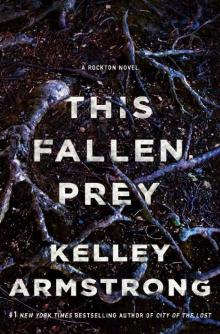 This Fallen Prey
This Fallen Prey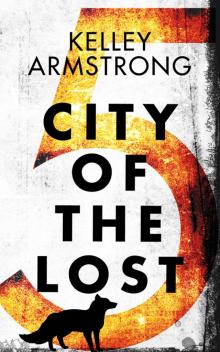 City of the Lost: Part Five
City of the Lost: Part Five Perfect Victim
Perfect Victim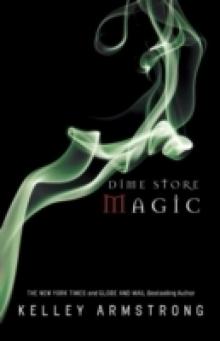 Dime Store Magic
Dime Store Magic Personal Demon
Personal Demon Haunted
Haunted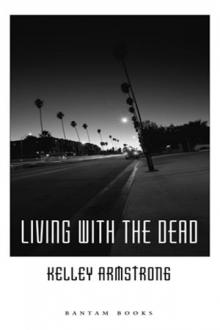 Living With the Dead
Living With the Dead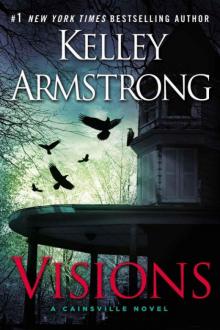 Visions
Visions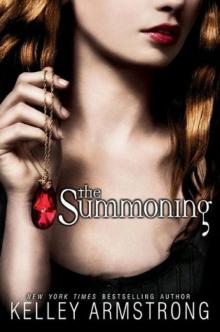 The Summoning
The Summoning Broken
Broken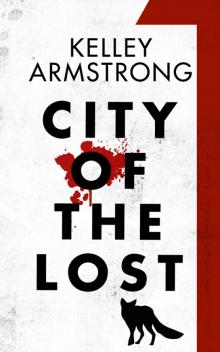 City of the Lost: Part One
City of the Lost: Part One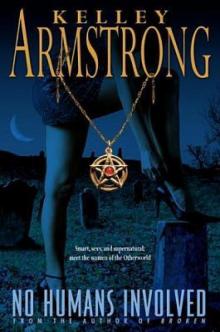 No Humans Involved
No Humans Involved The Awakening
The Awakening The Reckoning
The Reckoning The Gathering
The Gathering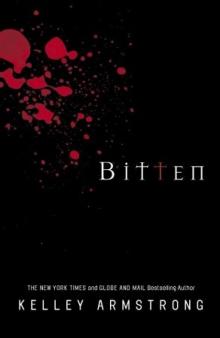 Bitten
Bitten Thirteen
Thirteen Gifted
Gifted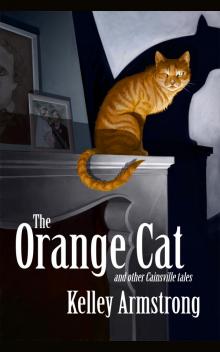 The Orange Cat and Other Cainsville Tales
The Orange Cat and Other Cainsville Tales Darkest Powers Bonus Pack 2
Darkest Powers Bonus Pack 2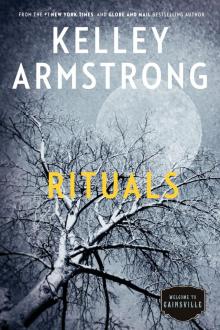 Rituals
Rituals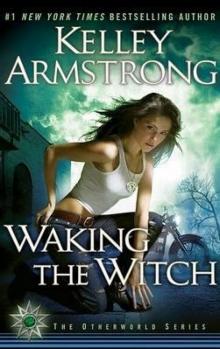 Waking the Witch
Waking the Witch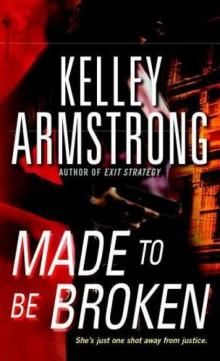 Made to Be Broken
Made to Be Broken Lost Souls
Lost Souls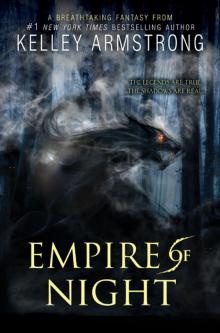 Empire of Night
Empire of Night Wild Justice
Wild Justice Double Play
Double Play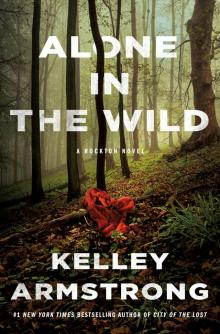 Alone in the Wild
Alone in the Wild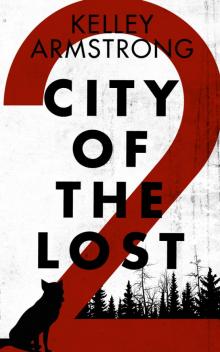 City of the Lost: Part Two
City of the Lost: Part Two A Stranger in Town
A Stranger in Town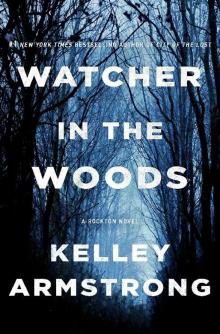 Watcher in the Woods: A Rockton Novel
Watcher in the Woods: A Rockton Novel Atoning
Atoning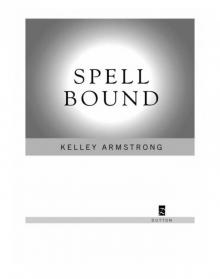 Spellbound
Spellbound Wolf's Bane
Wolf's Bane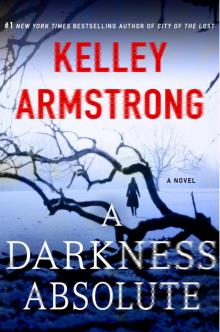 A Darkness Absolute
A Darkness Absolute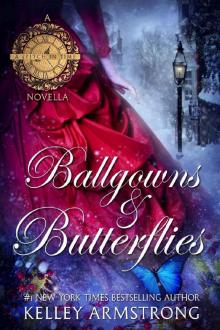 Ballgowns & Butterflies: A Stitch in Time Holiday Novella
Ballgowns & Butterflies: A Stitch in Time Holiday Novella Wherever She Goes
Wherever She Goes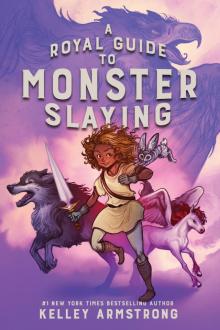 A Royal Guide to Monster Slaying
A Royal Guide to Monster Slaying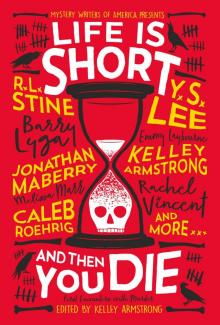 Life Is Short and Then You Die
Life Is Short and Then You Die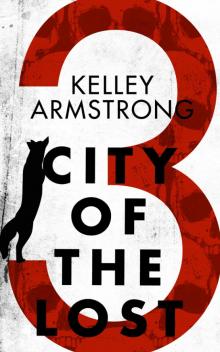 City of the Lost: Part Three
City of the Lost: Part Three Frostbitten
Frostbitten A Stitch in Time
A Stitch in Time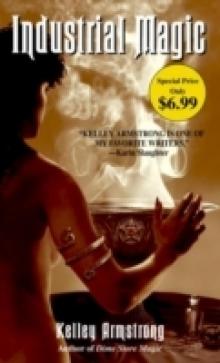 Industrial Magic
Industrial Magic Wherever She Goes (ARC)
Wherever She Goes (ARC)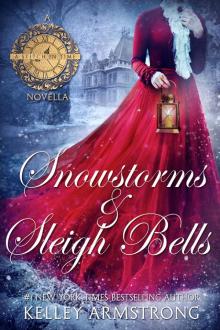 Snowstorms & Sleigh Bells: A Stitch in Time holiday novella
Snowstorms & Sleigh Bells: A Stitch in Time holiday novella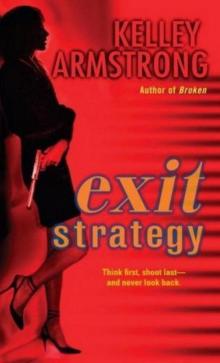 Exit Strategy
Exit Strategy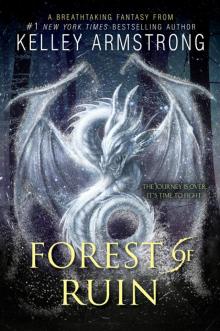 Forest of Ruin
Forest of Ruin Cursed Luck, Book 1
Cursed Luck, Book 1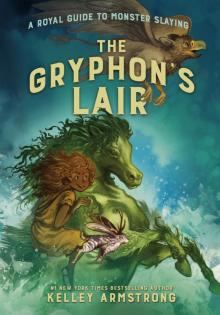 The Gryphon's Lair
The Gryphon's Lair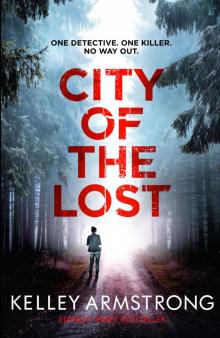 City of the Lost
City of the Lost City of the Lost: Part Four
City of the Lost: Part Four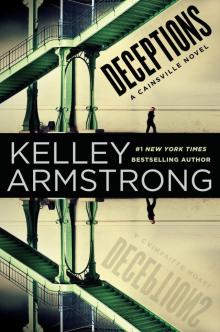 Deceptions
Deceptions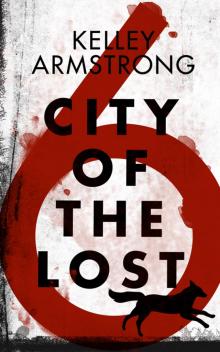 City of the Lost: Part Six
City of the Lost: Part Six Urban Enemies
Urban Enemies Stolen
Stolen Every Step She Takes
Every Step She Takes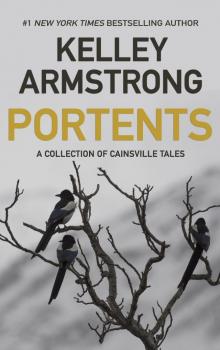 Portents
Portents Wolf's Curse
Wolf's Curse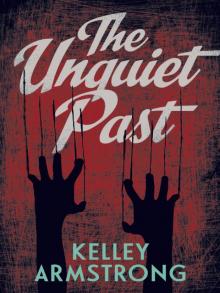 The Unquiet past
The Unquiet past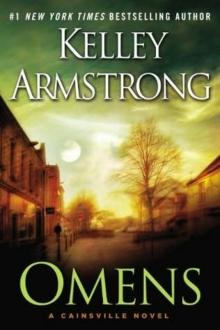 Omens ct-1
Omens ct-1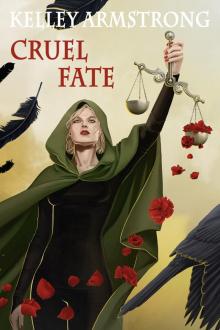 Cruel Fate
Cruel Fate The Calling dr-2
The Calling dr-2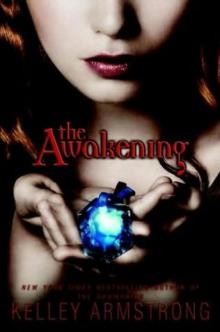 The Awakening dp-2
The Awakening dp-2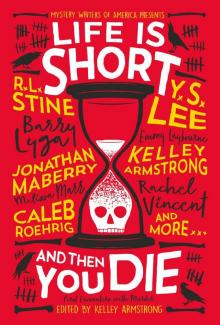 Life Is Short and Then You Die_First Encounters With Murder From Mystery Writers of America
Life Is Short and Then You Die_First Encounters With Murder From Mystery Writers of America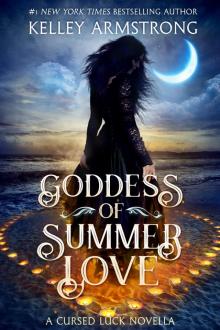 Goddess of Summer Love: a Cursed Luck novella
Goddess of Summer Love: a Cursed Luck novella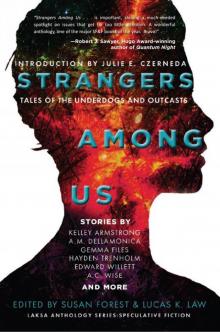 Strangers Among Us
Strangers Among Us The Gathering dr-1
The Gathering dr-1 The Rising dr-3
The Rising dr-3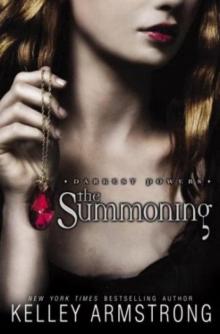 The Summoning dp-1
The Summoning dp-1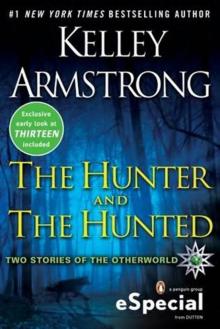 The Hunter And The Hunted
The Hunter And The Hunted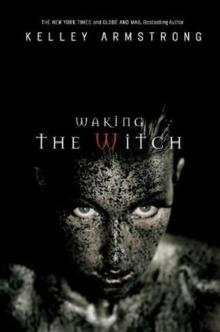 Waking the Witch woto-11
Waking the Witch woto-11